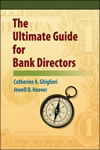All Articles
Accounting
Injury
Addiction Issues & Substance Abuse
Internet Marketing
Alternative Dispute Resolution (ADR)
Land Mapping - Surveying - Zoning
Audio Forensics
Land Use
Biokinetics
Legal Issues
Boating
Life Expectancy - Life Care Planning
Communication
Linguistics
Computer Forensics
Logistics - Reverse Logistics
Computers
Marine - Maritime
Cosmetology: Hair / Makeup
Market Research
Counseling
Medical - Medicine
Damages
Medical Records Review
Design
Medicine
Digital / Crypto Currency
Neuropsychology
Domestic Violence
Nonprofit Organizations
Environment
Obstetrics - Gynecology (OBGYN)
Ethics / Ethical Duties
Pharmacy & Pharmacology
Exercise & Fitness
Professional Malpractice
Expert Witnessing
Psychiatry
Eyewitness Testimony
Psychology
Failure Analysis
Radiology
Family Issues
Securities
Food & Beverage
Sexual Abuse - Molestation - Harassment
Foreign Affairs - Geopolitics
Underwriting
Industrial Hygiene and Safety
Yoga
More...

FINANCE-PAGE ARTICLES MAIN PAGE
. Contact Us if you are interested in having your work published on our website and linked to your Profile(s).
All Articles
Accident Investigation & Reconstruction
Forensic Psychiatry
Accounting
Forgery & Fraud
Addiction Issues & Substance Abuse
Hazardous Materials
Animals
HVAC - Heating, Ventilation, Air Conditioning
Aquatics Safety
Industrial Hygiene and Safety
Archaeology - Archeology
Insurance
Arms - Guns - Weapons
Intellectual Property
Attorney Fees
Internet Marketing
Biokinetics
Investigation & Surveillance
Blockchain Information
Legal Issues
Business Consulting
Market Research
Child Welfare
Medical Records Review
Communication
Mining
Computer Forensics
Pharmacy & Pharmacology
Counseling
Politics
Crisis Management
Pools and Spas (Recreational)
Dental - Dentistry
Product Liability
Digital Forensics
Professional Skills
Electrical - Electrocution
Psychology
Engineering
Real Estate
Environment
Risk Management
Eyewitness Testimony
Security
Feng Shui
Supply Chain Management
Food & Beverage
Toxicology
Forensic Analysis
Warnings & Labels
More...
Featured Articles
There are no active articles here at this time. Please use the search bar, try another category, or contact us if you would like to contribute an article.
This Article is unavailable. Contact Us
Search articles by title, description, author etc.
Sort Featured Articles
Featured resources
Blizzard!! The Great White Hurricane
by Timothy Minnich
The Ultimate Guide for Bank Directors
by Catherine A. Ghiglieri and Jewell D. Hoover
The Miracle Within
by Jack McCubbin, MD
Follow us










